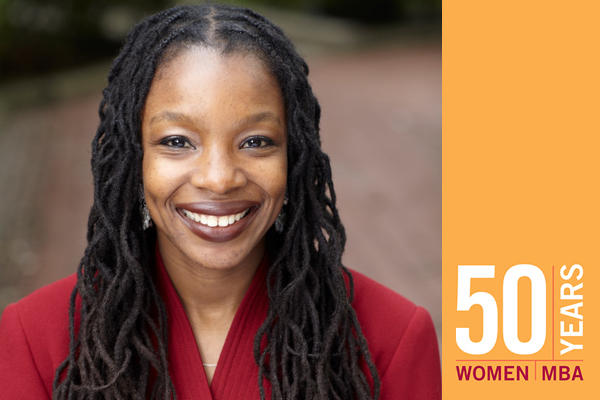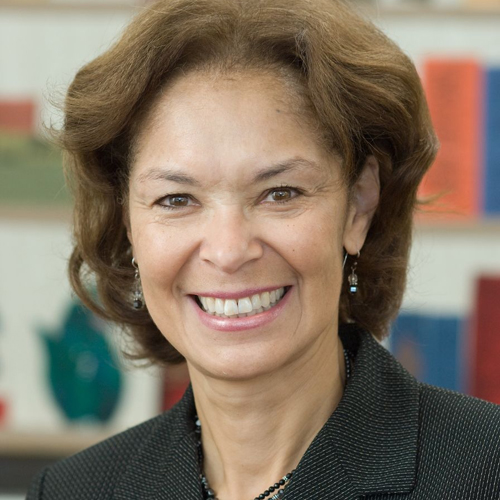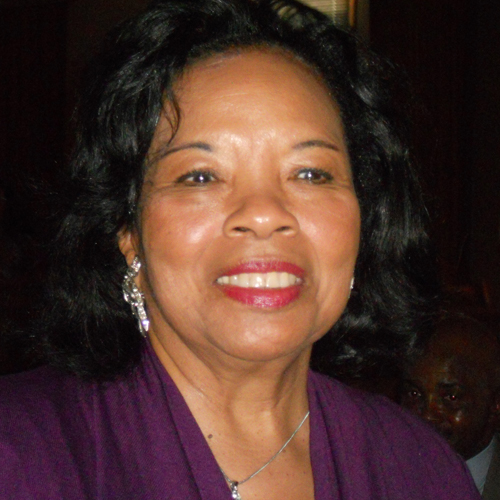
Modupe Akinola Robinson
Biography
Modupe Akinola Robinson is an assistant professor in the Management department at Columbia Business School. Robinson's research examines how organizational environments—characterized by deadlines, multi-tasking, and other attributes such as having low status—can engender stress, and how this stress can have spill-over effects on performance.
What impact did HBS have on your life and the life of others?
When I reflect on my decision to pursue my PhD three years after graduating from HBS, I am reminded of a phrase a good friend shared with me: "The courageous are those who are fearful, but go anyway." At the time, I was a consultant at Bain & Company and, like many, enjoying the post-MBA thrill of applying so much of what I learned at HBS. I knew in my heart that I wasn't pursuing my passion, but I was nervous about deviating from the coveted consulting career path in which so few African Americans have had an opportunity to navigate and thrive.
I remember considering calling my mentor, HBS professor David Thomas (now dean of Georgetown's McDonough School of Business), to get his advice on transitioning to a career in the academy. I met him while I was in college and had helped him conduct research on his book Breaking Through, which was my first exposure to the idea that cutting-edge research can profoundly influence corporate America. I also considered calling Dean Nitin Nohria, my LEAD professor at HBS, with whom I had conducted an independent study researching female entrepreneurship in developing countries. This work showed me how much I enjoy research and reminded me that my purpose was not solely domestic, but also international. After much soul-searching, I reached out to both of them and was humbled by how excited they were at the prospect of me pursuing an academic career. I subsequently joined HBS's PhD program in Organizational Behavior.
My relationships with Professor Thomas, Dean Nohria, and later, my PhD advisor, Professor Max Bazerman, were invaluable. Through them, I was able to move beyond questioning where to make my contribution to the business world and instead focus on how to best use my unique talents and leadership skills in whatever domain I chose. Through their guidance I now use my HBS degrees to teach future generations of business leaders how to be more effective and ethical leaders. Through my research, I show executives the benefits that can ensue from channeling the stress they experience, both psychologically and physiologically, in ways that can improve their health and performance. I also offer them insight into how they can create environments that allow women and minorities to thrive. Additionally, I advise nonprofit organizations and consult with entrepreneurs in Africa and beyond on how to create sustainable businesses that not only improve their quality of living but also contribute to their country's economic development. One of the most meaningful parts of this work is that I know that for many I teach, I am often the first black female professor they have ever had, making my presence an opportunity to defy stereotypes and break down barriers that can be caused by perceptions of difference.
While my career path is atypical for an HBS alum, it has shown me that the value of HBS extends beyond traditional business environments and that the breadth of its impact can be experienced by any woman of color who dares to step outside of her comfort zone. I would encourage young black women who attend HBS to get to know and perhaps even work with faculty whose perspective and vision resonate with you, as their mission may unwittingly be a source of inspiration and motivation that helps uncover your own passion. And on the topic of passion, having attended both my 5th and 10th reunions, it is clear that my most successful classmates are those who were bold enough to be true to themselves and pursue careers in areas that were sources of inspiration and motivation.
In addition to finding meaningful ways to engage with faculty while at HBS, I would also encourage you to begin developing your personal "board of directors." Mine is comprised of many of my closest HBS friends with whom I spent countless nights at HBS prepping cases, organizing conferences, traveling around the globe during treks, and just having a good old time. Their collective wisdom is simply amazing. This board also includes my husband, Craig Robinson (MBA 2002), who continues to push me professionally and spiritually, reminding me of the things I am passionate about and of my larger purpose.
The phrase I find myself repeating to prospective and current students is "HBS will take you many places." I mean this both literally and figuratively, as HBS has taken me to classrooms, board rooms, and around the globe, where I am able to further the professional and personal aspirations of leaders throughout the world. Most importantly, it has taken me to a deeper understanding of myself and the contributions I want to make to this world, creating a path that has been incredibly fulfilling in ways I never could have imagined. However, the key is being open to the places you may go, being courageous in doing the unconventional, and leaning on others who believe in you to give the right nudge or word of inspiration just when it's needed most.

